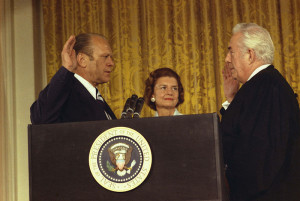Every now and again I come across surprising and amusing events in estate planning. I felt this one was worthy enough to share. The honored and revered Chief Justice Burger (1907-1995) who drafted and ruled on the famous cases such as Immigration and Naturalization Service v. Chadha (holding that Congress didn’t have veto power over Executive Actions of the President) and one of the few cases dealing with cruel and unusual punishment in the case of Solem v. Helm (holding that it was cruel and unusual punishment to impose life imprisonment for issuing a fraudulent check in the amount of $100). Even with all his jurisprudence and time on the bench, Justice Burger either failed to or purposely neglected to adequately plan for his estate. His will consisted of 3 lines:
- My executors will first pay all claims against my estate;
- The remainder of my estate will be distributed as follows: one-third to my daughter, Margaret Elizabeth Burger Rose and two-thirds to my son, Wade A. Burger;
- I designate and appoint as executors of this will, Wade A. Burger and J. Michael Luttig.
/s/ Warren E. Burger … [witnesses’ signatures]
His Will did not specifically address how to handle personal property, (art, gun collections, jewelry, sentimental objects), nor did it speak to the posting of a bond for the executors. His will was about as bare bones as you can get. Not only did it cause the executors and children a lot of grief in the distribution, but it also made the whole affair public. For someone who knew the legal costs, public scrutiny, and unwanted attention that this sort of action would cause, Justice Burger’s actions surprise me. The cost to take the estate through Probate Court alone is reason enough to use a trust not to mention the burden you are leaving your heirs. Justice Burger’s story will hopefully serve as a reminder to all professionals not to forget to take care of business at home no matter how proficient you are at work.


